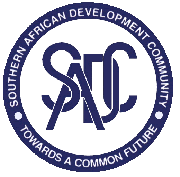
BY EVANS MATHANDA
Unfolding events in the Southern African Development Community (Sadc) region have induced a sense of reflection on the purpose and usefulness of the regional bloc.
South Africa is burning, in Eswatini there is smoke and thunder, and in Mozambique, terrorists are ravaging, but still Sadc decides to fold its hands, publishing statements that are just but an observer’s output.
One cannot be blamed for concluding that Sadc is the most powerless and ineffective regional bloc existing in Africa.
Sadc is a southern Africa’s regional bloc that was formed on August 17, 1992 comprising of 16-member states including Zimbabwe.
Among other key objectives, the community was formed to maintain peace and security, but ironically Sadc has violated its main objectives by failing to hold some African leaders to account for rampant violent conflicts and abuse of migrants, who are protected by international law.
Sadc has been giving press statements in electronic and print media whenever there is a conflict crisis in southern Africa, but its vision is to promote harmony and social solidarity and the call for decisive action towards achieving that goal.
It has no will to restore peace and order in conflict situations and this is why its interventions for conflict resolution initiatives have yielded no positive results.
- Chamisa under fire over US$120K donation
- Mavhunga puts DeMbare into Chibuku quarterfinals
- Pension funds bet on Cabora Bassa oilfields
- Councils defy govt fire tender directive
Keep Reading
We can equate it to the blind Bartimaeus for failing to see consequences of violent conflicts in the region. this failure manifests as an endorsement of violation of human rights, and handicapping of democratic processes.
South Africa has had several xenophobic attacks that needed Sadc intervention. at one point King Goodwill Zwelithini and President Cyril Ramaphosa instigated these attacks and there were no consequences for them.
In 2015, when the late former president Robert Mugabe was the chairperson for Sadc and the African Union, he told reporters during a meeting with other Sadc leaders that they applauded South Africa over its handling of xenophobic violence in the country.
But does Sadc serve its purpose?
Sadc does not learn from historical events and its interventions are mostly too little and too late as they call meetings one after the other despite lack of resources for conflict resolution.
South Africa is currently in turmoil, a situation that needs Sadc’s intervention as a matter of urgency.
Over 200 people have been killed during the protests triggered by the jailing of former president Jacob Zuma, but what is Sadc doing?
African leaders have a tendency of unleashing the army as a coercive strategy to restore peace and order.
Some innocent people have lost their lives in such negative peace strategies enforced by African leaders, but has Sadc ever acted on that?
Zimbabwe’s post 2018 election August 1 Harare violence in which at least six people were gunned down, shows Sadc’s lack of resolve to deal with political crises within member states, amid startling revelations the region is facing economic challenges due to violent conflicts.
Sadc has completely ignored political crises in member states such as Zimbabwe, Mozambique and Eswatini.
The protest that happened in Eswatini and the current situation in South Africa is clear evidence Sadc has failed to deliver its mandate.
The genocide in Mozambique is a classic example where Sadc approved this year, the deployment of joint forces to help Mozambique respond to an almost four-year-old conflict, which has killed at least 3 000 people and displaced almost 800 000, including children.
There are still delays on the deployment of the forces.
Thanks to Paul Kagame, who has sent his thousand men to quell the turmoil in Mozambique.
Just like the United Nations, Sadc should impose targeted measures on its member states as a strategy to protect the national constitution.
President Emmerson Mnangagwa gained power through a military coup in November 2017, a clear violation of the constitution.
This has set a wrong precedent for the region.
Sadc has nothing to offer in terms of regional integration and conflict resolution.
Sadc countries need to take a stand and give some teeth to Sadc for the attainment of a common goal in the region.
- Evans Mathanda is a journalist and development practitioner who writes in his capacity. For feedback email: [email protected] or call 0719770038 or Twitter @EvansMathanda19











